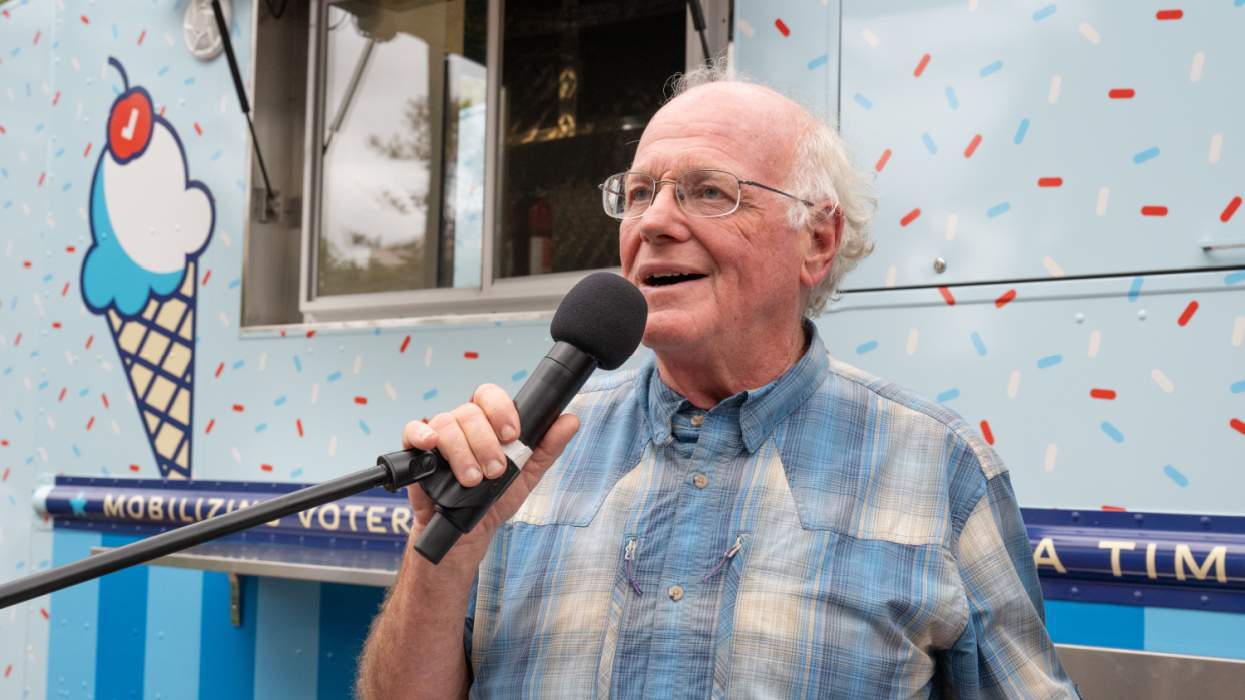The Department of Justice argued in court Tuesday that federal law does not ban antigay discrimination, while another U.S. government agency, the Equal Employment Opportunity Commission, contended the opposite.
The dueling views came in oral arguments before the U.S. Court of Appeals for the Second Circuit in a discrimination case brought by a gay man. In Zarda v. Altitude Express, skydiving instructor Donald Zarda contended that the Long Island-based company fired him for telling a customer he was gay. Zarda died in 2014, but his sister and partner are continuing to pursue the case.
A three-judge panel of the Second Circuit dismissed the case in April, saying the Civil Rights Act of 1964's Title VII, which bans sex discrimination, does not cover sexual orientation discrimination. The full court agreed to reconsider the case after the Chicago-based Seventh Circuit became the first court at the federal appellate level to rule that Title VII does indeed cover sexual orientation. Some other courts have reached this conclusion regarding gender identity.
Supporters of both sides put forth arguments Tuesday in the Second Circuit's New York City headquarters, in a hearing described by observers as often angry. The Department of Justice has filed a friend-of-the court brief taking the stance that Title VII does not extend to discrimination based on sexual orientation.
Hashim Mooppan, testifying on behalf of the Justice Department, said most courts have "expressly rejected" the view that Title VII does not cover this type of discrimination, Law.com reports. Also, he said, Congress has not passed any law banning sexual orientation discrimination.
"During an exchange with Judge Gerard Lynch, who asked if it is 'sort of OK' to discriminate on the basis of gender, Mooppan said that employers are allowed to fire employees for out-of-work sexual behaviors, such as being promiscuous, and that there are 'real, physical' differences between men and women," Law.com reports.
"The critical difference, your honor, is that discrimination requires treating people who are similarly situated differently," Mooppan said.
Chief Judge Robert Katzmann asked Mooppan why the Justice Department did not defer to the EEOC's position on Title VII. He responded by calling that "a complicated question" and said it would be inappropriate to discuss the two agencies' internal workings, according to Slate.
Slate explains what most likely lies behind the different interpretations of Title VII: "The EEOC's commissioners serve fixed terms and haven't gotten the memo placing politics above the law yet."
In court, EEOC attorney Jeremy Horowitz outlined the agency's reasoning for its position, Slate reports. If a man is fired for being in a romantic relationship with a man, while a woman would not be fired for such a relationship with a man, that is sex discrimination, he said. And sex discrimination includes discrimination against a person for not conforming to sex stereotypes, with the expectation of heterosexuality being the ultimate stereotype, according to the EEOC.
Gregory Antollino, a lawyer for Zarda's survivors, made that point as well, saying, "Sexual orientation cannot be extricated from sex; the two are one and the same," The New York Times reports. Horowitz further noted, "If you change the sex of the individual and the outcome would be different, that's discrimination," according to the Times.
The EEOC also contended that opposing interracial relationships is racial discrimination, so opposing same-sex relationships is sex discrimination. Mooppan took issue with that. If someone opposes same-sex relationships, "You might call them a lot of things, but you would not call them a sexist," he told the court, the Times reports.
"When arguments concluded, it seemed inevitable that the court would agree with the EEOC, reject the DOJ's wackadoodle theories, and find that Title VII already proscribes anti-gay employment discrimination," Slate's Mark Joseph Stern wrote.
Whatever the Second Circuit decides, the Supreme Court may weigh in on the matter. Lambda Legal has asked the high court to review a case in which the Eleventh Circuit dismissed a suit brought by a woman who said she was fired because she's a lesbian and gender-nonconforming. The Eleventh Circuit said Title VII did not ban such discrimination; Lambda has contended it does, and has appealed to the Supreme Court, which has yet to say whether it will take the case.















Charlie Kirk DID say stoning gay people was the 'perfect law' — and these other heinous quotes
These are some of his worst comments about LGBTQ+ people made by Charlie Kirk.